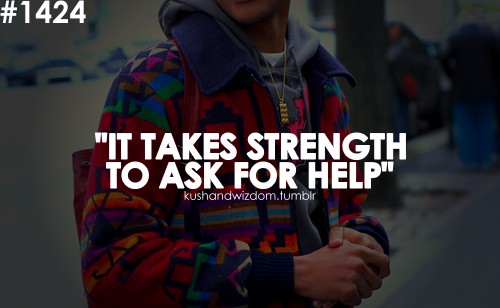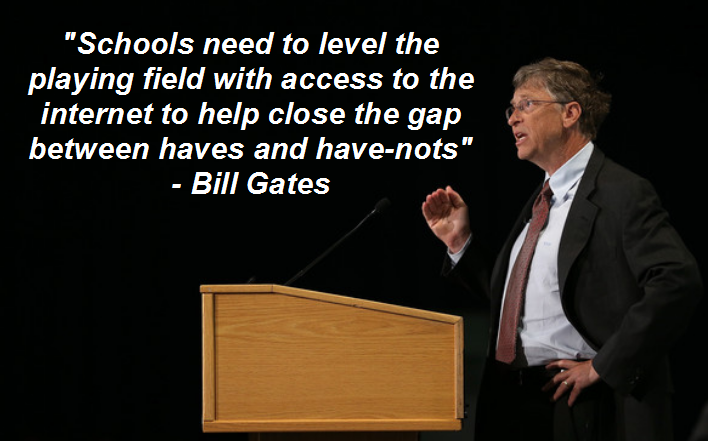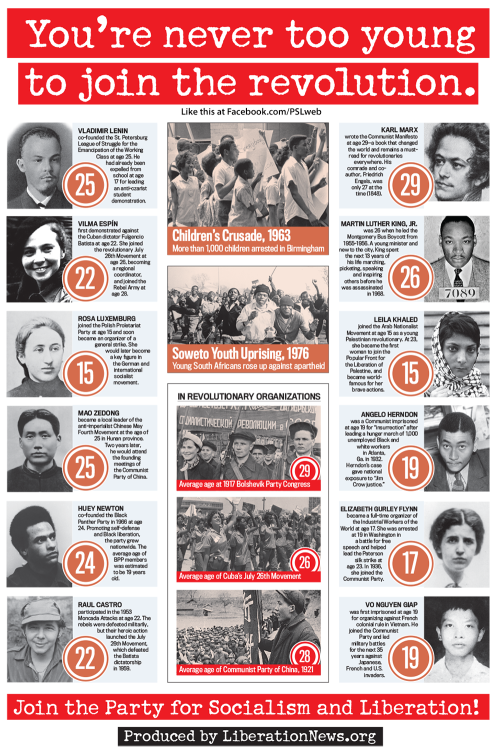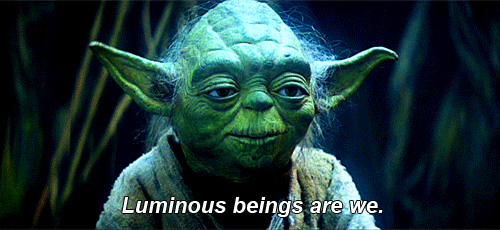36 officers, 2054 men
german side
36 officers, 2054 men
german side
Persons of mixed blood of the first degree married to persons of German blood if their marriage has resulted in children (persons of mixed blood of the second degree). Suc
1st degree 50/50
In a speech delivered to the foremen of work units in June 1943, Gens made his policy of “survival through labour” quite clear: “While working for ghetto industry or for the kommandos outside the ghetto, we have, contrary to the trite opinion that we are poor workers, shown that we are very useful and irreplaceable. Under present war conditions, work in general and work for the Wehrmacht in particular is the command of the hour… It is urgent that we make changes to increase the output of the workers and thus enhance the justification for our existence.” Only the young and healthy were considered to be of value; the elderly, the sick and the unskilled were, of necessity, considered expendable. So far as it was achievable, women and children would be spared, since they formed the biological nucleus of the community, but otherwise it was a question of negotiating with the Germans in order to attempt to restrict the number of victims to the minimum possible
survival through labor
To these ends, the Vilna ghetto fighters blew up a German military train, smuggled in arms, sabotaged German military equipment, set up an illegal printing press outside of the ghetto, and established ties to the Soviet resistance in the city and the forests. They also sent emissaries to the Warsaw and Bialystok ghettos to warn the inhabitants about the mass killings of Jews in the occupied Soviet Union and to incite resistance.
notes
For the seizing of the foreign values a similar organization would have to be provided for in the State treaties which are to be concluded with the individual European countries about the regulation of the Jewish question.
cooperation with other govts...
__________________________________________________________________________ Shoah Resource Center, The International School for Holocaust Studies3/2with which they may make a living, which gives them once more a task and sense to their lives!
Find Jews jobs.
1) Jews are forbidden to fly the Reich or National flag or to display the Reich colors. They are, on the other hand, permitted to display the Jewish colors. The exercise of this right is protected by the State.
Star of David = OK Nazi/German Flag = Not ok
Distinguish and recognition....
Jews may not employ in their households female subjects of the state of German or related blood who are under 45 years old.
Assumption that rich Jew will take advantage of German woman
Extramarital intercourse between Jews and subjects of the state of German or related blood is forbidden.
German and Jews cannot have sex
1) Marriages between Jews and subjects of the state of German or related blood are forbidden. Marriages nevertheless concluded are invalid, even if concluded abroad to circumvent this law.
germans and jews cannot marry
Section 1 does not apply to civil servants who were already employed on August 1, 1914, or who fought during the World War at the front for the German Reich or who fought for its allies or whose fathers or sons were killed in the World War. With the agreement of the appropriate special minister or of the highest authorities of the federal states, the Reich Minister of the Interior can permit further exceptions in the case of officials who are abroad.
Veterans and military... Hindenburg doesn't object to laws if keep out military. Getting military on side...
One grandparent shall be considered as full-blooded if he or she belonged to the Jewish religious community.
Blood, yet religion?
The Reichstag passed the so-called Nuremberg Laws (or “Nuremberg Racial Laws”) on September 15,1935, during the Seventh Reich Party Rally of the NSDAP in Nuremberg. Henceforth, these laws formed the basis of the Nazi persecution of the Jews. The “Law for the Protection of German Blood and German Honor” (“Blood Protection Law”) aimed to isolate the Jews racially and socially by prohibiting them, under pain of severe punishment, from marrying or having sexual relations with non-Jews.
The aim of our work is the co-operation of all those who take part, actively or passively, in Jewish cultural life, both artists and audience, and this can be achieved only if all Jewish organizations play their part. Every individual is jointly responsible and will decide with us on the success of our work.
Theater/School co-op?
We have received authority from the State Commissioner for the independent organization of artistic and creative work.
Nazi state I'm assuming...
Date?
Only in this way willAhasverusbe forced to reach for his staff forthe last time and exchange it for the axe and the spade.

Who doesn’t, on some level, want to get off Twitter, build a tiny house, and move to the unwired northern woods
I wonder if many millennials can even?

In my own Networks track, I realized at the end that a participant had dropped out halfway through the institute because the focus on Twitter was unhelpful to her and when she pushed at this, she felt that the group didn’t hear; her leaving meant that our “network” was reified into something less multifaceted than it could have been
I get that we need to make sure everyone's voice is heard and every opinion taken into consideration, but why adjust the whole group because one felt a particular focus wasn't helpful to her?
I can teach students to write argumentative essays in online environments but I could never account for the impact of design using pencil and paper.
The basic of the basics...
We looked at three websites about Mumia Abu-Jamal, a Philadelphia man who contests his death row conviction of killing a police officer.
Nice subject! 
By examining how an idea travels, the frequency of times readers and authors mention an idea, and tracing it back to its source all require analytics.
Funny story about someone hating on analytics:
I was conducting a business deal with a vendor a few months back. After doing some research and finding little to no feedback/reviews outside of their own personal website on the net; I mentioned this to them during a meeting. They proceeded to tell me that "reviews on Google, Yelp, etc. are all analytics..." with their tone suggesting that analytics are not important...
Needless to say, I didn't go with that vendor...
Few students could identify an author let alone evaluate other markers of credibility.
I've noticed that I started to look up the authors for our readings this semester. Maybe it was trying to put links in my blogs, but I have looked up some of the author's twitter pages....
Isn't there a few of the authors that are following our class on hypothes.is and Twitter?
A lack of background knolwedge did not phase skilled readers. This I documented in my work as very few students knew much about the domain of my inquiry tasks (American Revolution).
Can't this section be the quintessential definition of what 'research' is? Personally, I never discuss subject matter of any type without some sort of personal background knowledge conducted.
Skilled online readers engage in strategic text assembly which I define as the ability to read for meaning while flexibly applying both navigation strategies and comprehension monitoring strategies.
Click links, open tabs, find multiple sources with a few clicks of the mouse, etc....
Pretty much, be a PC multitasker 
For Kaku intelligence should be a mark of how divergent thinking allows some to create more complex models and more frequent simulations of the future.
Thinking "differently" or "outside-the-box" was sort of frowned upon when I served in the military. I think this is why military culture seems "stuck in the past"...
And probably why I believed some of my leaders weren't very intelligent...
Human consciousness involves the ability to create a model of the world and then simulate the model of the world in order to obtain a goal.
Our consciousness definitely separates us from primates in the intelligence scale... We can build more complex schemas in, what is essentially, our versions of the world...
The teacher had given two additional instructions: ”put your writing at the top of the page, and the drawing at the bottom”, and “use only black pencils in your drawing”. Apart from the different responses to this instruction (7 b used colour pencils) there is the startling difference in what each “saw” and what each wrote.
Limited options can drastically change how we create. They can also drastically change how we view subjects.
The kinds of meanings made by the letter “e”, by the word “Grille”, and by the colour “red” are different kinds of meanings. Not only do they mean different things, they mean differently. You can’t look up the meaning of “e”, nor the meaning of “lurid red”. What “e” does is not so much refer to some object, such as a Grill, or a Bar, but rather to evoke by cultural associations. It has a history of use in particular places (in ‘marketing speak’ for instance), and it is knowing its provenance that gives it its meaning. “e” puts me in the world of ‘Olde England’ with all its mythic associations. In one sense, colours work similarly: I have encountered the colour ‘red’ in many instances, as in “red light district”, as a colour of lipsticks: so in this context it is eroticized. Words have their histories, but they also refer; they name things (as nouns) or actions (as verbs) or attributes (as adjectives) or as relations of location (as prepositions), and so on
Shakespeare was a master linguist. He would take words that meant one thing and used them in a context to mean something completely different...
The "little death"...
It might be the medium of the teacher’s body, involving speech, movement and gesture.
Tried this with a student I was working with during my observations for another EDU class. The student, who is on and IEP and is a special learner, better understood the concept of the equator and the prime meridian when I drew a huge "air circle" with my . hand and arm and swiped in the direction for each. e.g. I would draw a huge circle in the air and slice across it horizontally for the equator. I would see the student do the same action to himself during the test on the subject.
To reflect on this: in writing or speaking I have to use a sentence in which two entities – cell and nucleus – are related by a verb, have, indicating a possessive relation: the cell has something (much like: “I have a car, a house, two kids, etc”). I could use a different verb: “In every cell there is a nucleus”. The meaning is now quite different: about existence, there is and location, in
Not trying to get off track, but looking into this deeper; we can see how a few words or variations of voice dictation in conversation can be misconstrued or taken out of context. The common phrase: "That came out wrong... Let me rephrase..." often follows misunderstood phrases or voice dictations.

But, most importantly, they are to use the expertise of other students and the teacher in the classroom.
Going back to "being proud"; this also means being humble. We can't be shy or afraid to ask for help.
This is not only a lesson for educators and students...
But a lesson in life...
Construction is equal parts inspiration and perspiration. Construction calls on creativity as well as persistence, flexibility, and revision. Construction asks our students and teachers to focus on the power and patience employed during work process…and not just the final resultant work product.
Teaching students to take pride in their work, no matter how they themselves see it, will motivate them and make them feel as their creation and work is being heard... Having pride in your work will only make you work harder towards your goal!
to try and consolidate the great work in visual, digital, and multimodal content construction…while making it easy & flexible enough for teachers to make this work happen in their classrooms.
,I'm all about easy-access for educators and teachers in creating digital work. I'm also about having students use tech in order to learn and create... But, in reality, outside of colleges and "well-off" schools; how easy is it to really pull this off? Sure, it's easy for educators who are already adults who already possess the tools necessary to make this work happen, but what about the students and schools who have little to no access to any type of digital access to create visual, digital and multimodal content construction? We also have to take into consideration the politics in academia that have and are constantly hindering any progress in this area...
Yet many young people seem willing to lie to access those communities.
It is so easy for youths to simply put they are of age to engage in adult orientated activities online. Alas, I am seeing many adults who simply allow youths to engage in this activity. e.g. Parents buying mature rated video games for their underage child and allowing them to participate in online gaming communities meant for adult gamers with adult themes and language.
Young people are creating new modes of expression that are poorly understood by adults, and as a result they receive little to no guidance or supervision
New "leet speak" is getting created almost daily. It's almost like a secret type of chatting that adults and teachers need to be up to speed with in order to guide students and youths on the web.
Yet Schrier was surprised by another phenomenon: the young people took the game’s representation of historical evidence at face value, acting as if all of the information in the game were authentic.
I've heard of this happening with games like Assassin's Creed
Even if these opportunities were not for-mally valued by our educational institutions or listed on a resume when applying for a job, the skills and self-confidence gathered by moving across all of these online communities surely would manifest themselves in other ways, offering yet another leg up to youths on one side and another disadvantage to youths on the opposite side of the participation gap
Definitely why we should close the tech opportunity gap with youths...
There are three core flaws with the laissez-faire approach. The first is that it does not address the fundamental inequalities in young people’s access to new media technologies and the opportunities for participation they represent (what we call the participation gap). The second is that it assumes that children are actively reflecting on their media experiences and thus can articulate what they learn from their participation (the transparency problem). The third is that it assumes children, on their own, can develop the ethical norms needed to cope with a com-plex and diverse social environment online (the ethics challenge).
1st) Fairfield county is a great example of this: Children in Greenwich have the latest tech in class (heard they are even given take home iPads); while children in Bridgeport are lucky to even get a projector in class.
2nd) Children just "go with the flow" when it comes to tech and the web. They post and read post without any real take-back from what they are reading.
3rd) The web can be a creepy and scary place for children. It can also be a hub of bullying for youths. Many children are still realizing the consequences of their online activity.
The first is that it does not address the fundamental inequalities in young people’s access to new media technologies and the opportunities for participation they represent (what we call the participation gap). The second is that it assumes that children are actively reflecting on their media experiences and thus can articulate what they learn from their participation (the transparency problem). The third is that it assumes children, on their own, can develop the ethical norms needed to cope with a com-plex and diverse social environment online (the ethics challenge).
1st) Fairfield County is a perfect example. Children in Greenwich have better tech in class rooms and at home (heard a rumor they are getting issued iPads); while the children in Bridgeport are lucky to get a projector in the class.
2nd) Most children just "go with the flow" when it comes to tech or social media. There is little reflection on what they read or post at times.
3rd) The web can be a creepy and scary place for children. It can also be a hub of bullying activity for youths. Most youths are still figuring out the consequences of what they post or read online.
will be able to collaborate better with people from diverse cultural backgrounds.
Cultural backgrounds are nil when it comes to reaching a goal or accomplishing an objective in the gaming world. I'm glad that this mindset is also being applied to the "real" world...
Beck and Wade conclude that gamers were more open to taking risks and engaging in competition but also more open to collaborating with others and more willing to revise earlier assumptions.
About 90% of the guys I served with in the USMC were (and still are) gamers... And we def are some risk taking, competitive guys...
Yet the new par-ticipatory culture offers many opportunities for youths to engage in civic debates, participate in community life, and even become political leaders
This reminds me of a photo I saw circulating my FB feed a few years back... (not that I am endorsing this particular political party... Just goes well with this passage...) 
David Buckingham argues that young people’s lack of interest in news and their disconnection from politics reflects their per-ception of disempowerment.
I like this statement! We can't blame society for our feelings of disempowerment when we don't take the time to become somewhat literate and verse in news and politics.
"An illiterate country is easy to deceive..."
Informal learning communities can evolve to respond to short-term needs and temporary interests, whereas the institu-tions supporting public education have changed little despite decades of school reform. Informal learning communities are ad hoc and localized; formal educational communities are bureaucratic and increasingly national in scope. We can move in and out of informal learning communities if they fail to meet our needs; we enjoy no such mobility in our relations to formal education.
I see this as:
Informal = fun, more learning happening, good for the community, easy to access and easy to change
Formal = boring, bureaucratic, rigid
A focus on expanding access to new technologies carries us only so far if we do not also foster the skills and cultural knowledge necessary to deploy those tools toward our own ends.
The Arab Spring is a great example of this...
Revolutions through the use of technologies! 
black hole that consumes resources that might be better devoted to traditional classroom activities (in the more critical version).
Like I stated before, this was the mindset of the 90's. I hear from current educators that more tech classes and tech related activities used in classrooms now, but that they are still looked at as taking less precedence to good ole' books, paper and pen...
Not every member must contribute, but all must believe they are free to contribute and that what they contribute will be appropriately valued.
A valuable lesson for future educators!
Too often neglected, except as a source of risk, these communication and entertainment–focused activities, by contrast with the information-focused uses at the centre of public and policy agendas, are driving emerging media literacy.
Saw this is some of the other student's blog posts. There seems to be a concern of some sort on what youths posts, publish and share on the web. Though, rightfully so... It'll be our jobs as educators to "teach them the ways" when it comes to the web and technology so they can steer clear of the risks...
Teach them we must...

The study also does not include even more widespread practices, such as computer or video gaming, that can require an extensive focus on constructing and performing as fictional personas.
Growing up in the 90's, almost all my teachers (as well as many adults in my life) always talked badly about gaming. Like it was going to poison our youth or something...
Funny how the average age of today's gamer is 35 years old [http://www.theesa.com/wp-content/uploads/2015/04/ESA-Essential-Facts-2015.pdf]
Nor did it count other forms of creative expression and appropria-tion, such as music sampling in the hip-hop community.
Might explain why urban youths are somewhat more likely than their suburban or rural counterparts to be media creators...
Indeed, many of these youths were frustrated with school; some dropped out and others chose to graduate early. They developed much of their skill and knowledge through their participation in the informal learning communi-ties of fans and gamers.
Brilliant teens who became bored/frustrated with the draconian rubrics of school and took to their tech communities in order to become successful.
And the establishment is always hating on video games...
What Skyler meant is simply that social acceptance depends on the ability to socialize with one’s peers at the “cool” place. Each cohort of teens has a differ-ent space that it decides is cool.
MySpace was Skyler's and her peers' meeting spot. Much like FB today... Tell someone you don't have FB and be prepared to looked at oddly.
In an effort to learn more about him, the committee members Googled him. They found his MySpace profile. It was filled with gang symbolism, crass language, and references to gang activities. They recoiled.
A prime example of how employers, or even academic institutions, will Google you when you apply.
What the drive-in was to teens in the 1950s and the mall in the 1980s, Facebook, texting, Twitter, instant messaging, and other social media are to teens now.
The changing of times through tech!
But they also track celebrities like Kanye West and Kim Kardashian to imagine the freedoms they would have if they were famous.
Scary thought!
The internet presented me with a bigger world, a world populated by people who shared my idiosyncratic interests and were ready to discuss them at any time, day or night.
I have heard the "birth" of the internet being discussed as the 2nd Global Exchange in some sorts (the Columbian Exchange being the 1st)...
It used to be the mall, but for the youth discussed in this book, social network sites like Facebook, Twitter, and Instagram are the cool places. Inevitably, by the time this book is published, the next generation of teens will have inhab-ited a new set of apps and tools, making social network sites feel passé. The spaces may change, but the organizing principles aren’t different.
Such great metaphors in regards to "cool hangout spots" that teens frequent. Teens want to gather an express themselves socially. Gathering spots used to be malls, movie theaters, etc. in order to congregate and socialize.
The new "malls" are social media sites... The new "movie theaters"... Netflix...
I had spent my own teen years online, and I was among the first generation of teens who did so. But that was a different era; few of my friends in the early 1990s were interested in computers at all.
Total opposite in my own life... Remember being with friends at a peer's house and getting excited that his family was getting the "new cable modem" that just came out and changing over from 56k dial up...
So many people talk about youth engagement with social media, but very few of them are willing to take the time to listen to teens, to hear them, or to pay attention to what they have to say about their lives,
Totally agree with this statement! Many older generations tend to criticize or negatively critique the teens' social media habits. Yet, they are failing to realize that a teen's social media engagement is in actuality almost always a subtle representation of that teen's self...